Belgian economic growth accelerated to 1.0% in 2014 after two years of weak performance. This improvement is expected to continue in 2015, with 1.2% growth in GDP forecast.
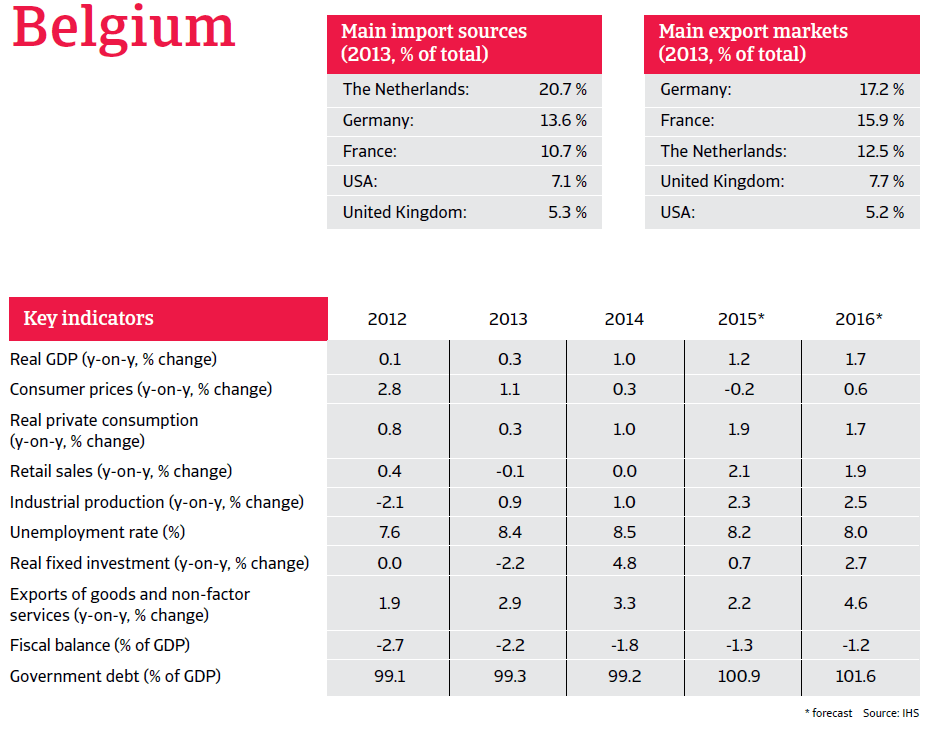
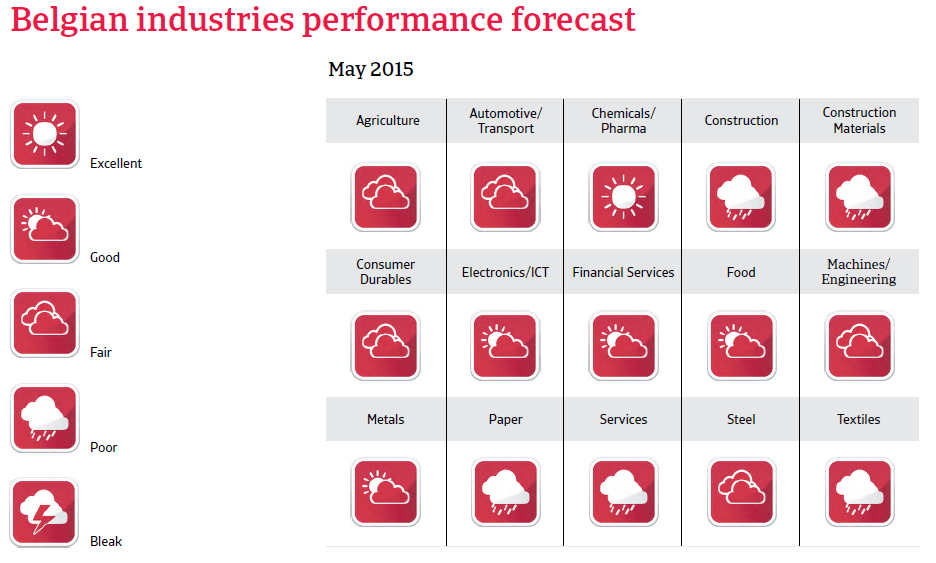
The insolvency environment
Corporate insolvencies finally decreased in 2014
As a consequence of the recession triggered by the global credit crisis, the number of Belgian corporate insolvencies rose by more than 10% in 2008 and 2009, and continued to increase even during the economic rebound of 2010 and 2011. This was in stark contrast to its neighbours - France, Germany and the Netherlands - where business failures reduced during 2010 and 2011. With low GDP growth rates in 2012 and 2013 the worsening trend in Belgian insolvencies continued. However, in 2014 business failures finally decreased by 8.6%, to 10,700 cases. That said, insolvencies remained high, especially in the construction, hotel/restaurant and transport sectors. In 2015 business insolvencies are expected to decrease further, by 11% year-on-year.
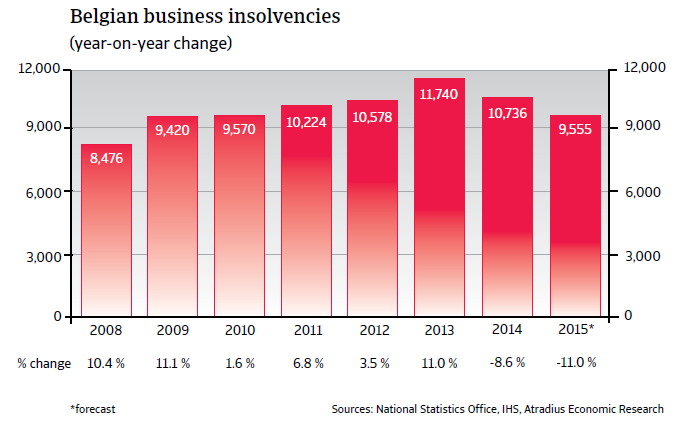
Economic situation
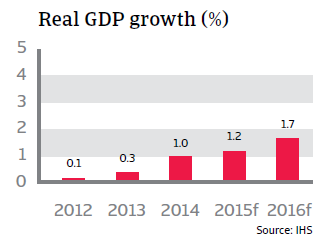
The rebound is set to continue in 2015
Belgian economic growth accelerated to 1.0% in 2014 after two years of weak performance. This improvement is expected to continue in 2015, with 1.2% growth in GDP forecast. In 2014 net exports again contributed positively to Belgium’s economic performance, while domestic demand rebounded, growing by 1.7%. Real fixed investment increased after two years of contraction.
Consumer confidence is increasing
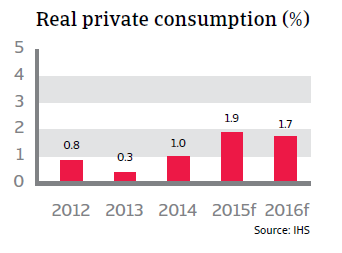
Private consumption growth remained subdued in 2013 and 2014. This is partially due to increased unemployment (8.5% in 2014), which increased due to a number of closures – the main one being the shutdown of the Ford plant in Genk. 4,000 employees were directly affected, but the total impact is estimated to be 10,000 jobs. However, unemployment is expected to decrease slightly in 2015, and consumer confidence has steadily improved since the end of 2014. With private consumption expected to increase 1.9% in 2015, this rise in consumer confidence could bring about an increase in spending to support the future rebound. This is also helped by very low consumer price inflation.
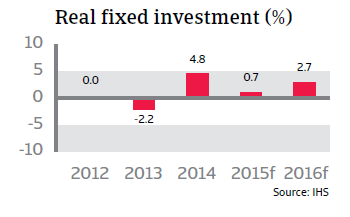
Investment growth set to continue
Business confidence remained volatile in recent months, but overall, it increased in 2014 compared to 2013. Real fixed investment grew 4.8% after two years of decreases, with business investments increasing by more than 6%. Real fixed investment growth is expected to continue in 2015, although at a lower rate.
Exports will increase further
As Belgium is an export-driven economy, its balance of trade should be structurally positive. Net exports increased from EUR 8.8 billion in 2013 to EUR 11.1 billion in 2014, helped by lower costs for energy imports such as petrol. Export growth is expected to increase 2.2% in 2015.
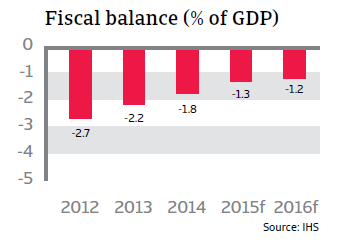
Government debt remains above 100% of GDP
The yearly fiscal deficit is expected to decrease further in 2015, helped by austerity measures passed in 2013. However, government debt will increase to above 100% of GDP in 2015.


